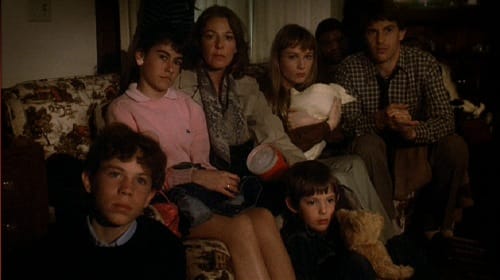Episodes: In praise of Testament, the grimmest post-apocalyptic movie ever made

I love stories about the aftermath of the apocalypse. I especially love stories about the aftermath of nuclear war. There's just something about the terrifying randomness of it, the way that the bombs mark a clear delineation between "before" and "after." A plague takes at least a little while to spread. The zombies don't arise all at once. A nuclear war is a big ol' dividing line.
Suffice to say, I don't terribly want to live through the apocalypse. (Oh, who am I kidding? I live in downtown Los Angeles. If the apocalypse comes, I'll be one of the first to go.) But I love living through it in fictional terms, and there are few post-apocalyptic books I haven't read and few movies I haven't seen. I even love the really shitty ones, to be honest. There's just something about the idea of everything becoming nothing that I find irresistible.
But for as much as I enjoy the Mad Maxes of the world, I really do like when post-apocalyptic movies are suitably grim, when they attempt to really delve into what it would be like. I suspect this is an offshoot of growing up in South Dakota in the 1980s, when nuclear war was on people's minds, but I also lived far from any major targets. If nuclear war came along, my family and I would probably survive it. And then what would we do? Wait for the long, slow death to come?
As such, I've often pointed to Testament, a 1983 film that was part of a mini wave of early '80s post-nuke tales, driven by the fear lots of folks had that Ronald Reagan would saber rattle the world into World War III. (Spoiler alert: he didn't!) The legacy of this time, then, mostly lives on in a bunch of books and movies. The best known is probably The Day After, simply because it aired on TV and was seen by lots and lots of people. But I've always been attached to a variety of smaller projects that delve more into the utter devastation that would follow such a conflict.
My favorite of those is Testament, which I sometimes describe as "what would happen if nuclear war interrupted Terms of Endearment." This is a touch glib -- the film doesn't really have anything like the mother-daughter relationship at the center of Terms -- but it sort of captures the feeling of watching the movie, which is a closely observed family drama that turns wrenching when the bombs start to fall.
Originally produced for PBS (a fact I literally just learned -- thanks Wikipedia!), Testament's success is in how small-scale it is. You don't see anything destroyed. You don't see mushroom clouds billow. You just watch as a family slowly crumbles as surely as any buildings around them. The patriarch was almost certainly killed in the blast. Two of the three children die. Others who move in with the family to maintain some semblance of normalcy die as well. Their little suburb slowly succumbs, rotting from the inside out.
What I love about Testament is the way it underscores how in the wake of apocalypse, humans would probably try to return to what had worked before. It's a movie about trying to restore order by pretending chaos doesn't exist and realizing, slowly but surely, that the task is impossible. The final two scenes of the film -- which feature the remaining family members attempting suicide before realizing they just can't, then an impromptu birthday celebration -- are very sad but perversely hopeful. This is what humans do, the film says. They persevere, even when it's pointless to do so.
(Sidebar: There's a similar quality to Cormac McCarthy's The Road, in both book and novel form. Though that is often considered one of McCarthy's grimmest books, I think it's one of the few where he leaves the window open for just the slightest glint of light at the very end. The post-apocalyptic genre allows for this sort of hope, in a very weird way.)
The real reason to watch Testament is for the work of Jane Alexander, who is ferociously committed to the film's lead role. She struggles to hold her family together, then struggles to hold herself together, then just struggles. It's a performance without vanity, because she's utterly willing to play someone who doesn't have a good reason to be alive beyond simple biological function. She's going to die from radiation poisoning eventually, but she needs to make sure her oldest son (the only child to survive) can push forward. It's not even that her animal brain kicks in; it's that she's tapped into the oldest, most primal drives there are, the need to keep propagating, even if everything in you says there's no way to do so.
It's impossible to watch a movie like this and not wonder a bit what you might do in the same circumstances. I have always assumed I would try to make a break for my childhood home, should I somehow survive the initial wave. I have always assumed I would keep going. I do not think I would have it in me to end it, even if it were clear that death was coming sooner than I would like, was knocking at the door. I think I would probably keep scrabbling, as ill-advised as that might be. The characters in Testament do, and some part of me hopes they still are.
--
Episodes is published three-ish times per week, and more if I feel like it. It is mostly about television, except when it's not. Suggest topics for future installments via email or on Twitter. Read more of my work at Vox Dot Com.



